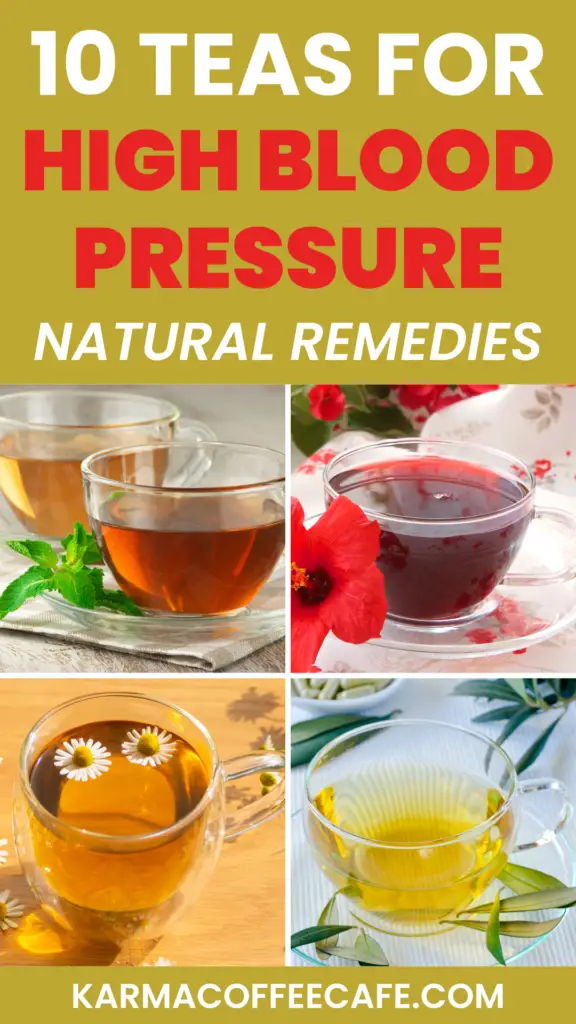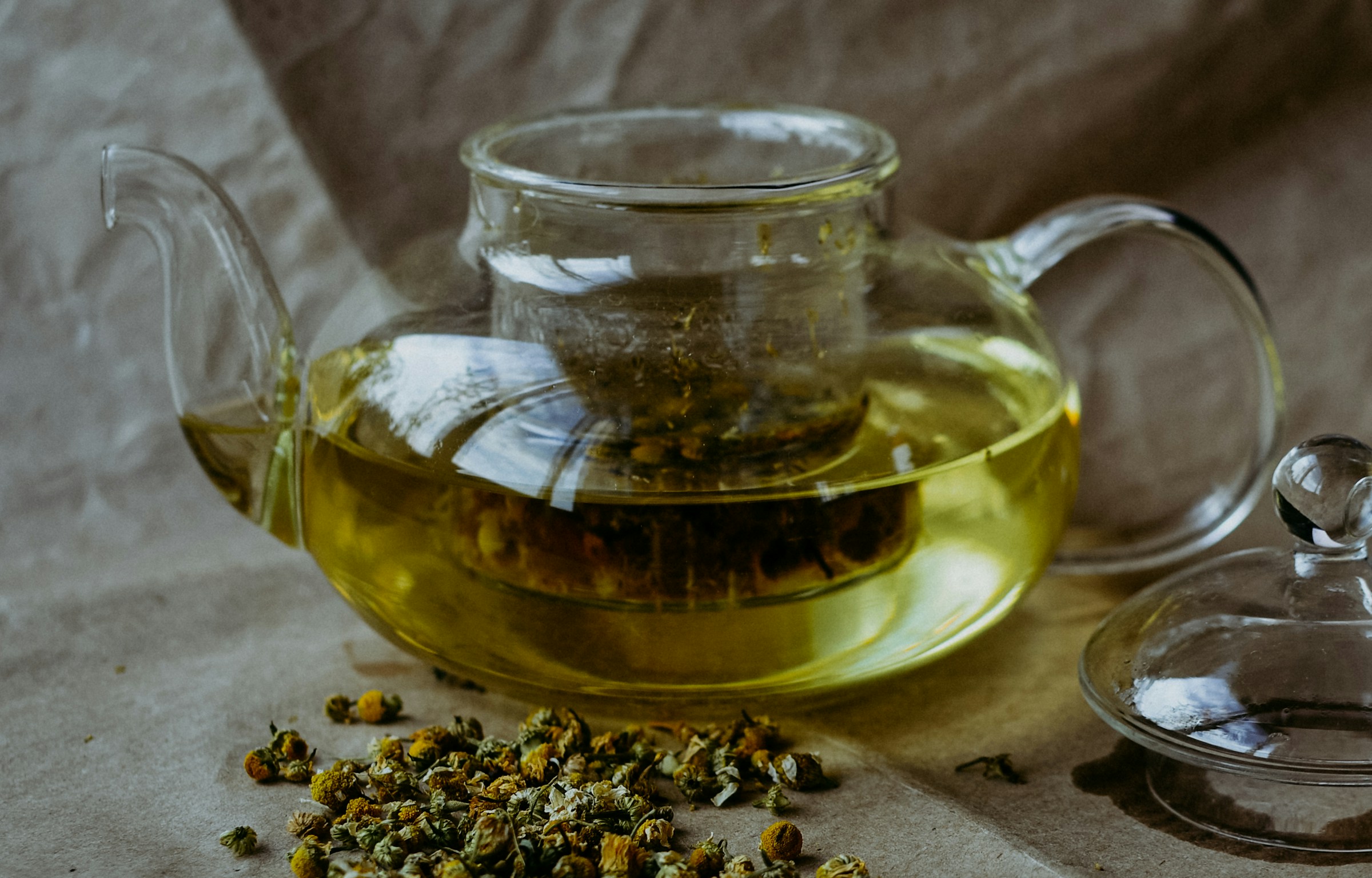High blood pressure is a common condition that can lead to serious health problems like heart disease and stroke.
Managing it is crucial for maintaining overall health.
One natural and enjoyable way to help control blood pressure is by drinking tea.
Certain teas are packed with beneficial compounds that can lower blood pressure.
In this guide, we’ll explore the 7 best teas for managing blood pressure and how they work.

7 Best Teas to Lower Blood Pressure: At A Glance
- Green Tea
- Hibiscus Tea
- Black Tea
- Oolong Tea
- Chamomile Tea
- Olive Leaf Tea
- Lavender Tea
Understanding High Blood Pressure
High blood pressure, also known as hypertension, is a condition where the force of the blood against the artery walls is consistently too high.
This can lead to serious health problems such as heart disease, stroke, and kidney failure.
The causes of high blood pressure can vary and include factors like genetics, poor diet, lack of physical activity, obesity, and excessive alcohol consumption.
Stress and smoking also contribute significantly.
It’s crucial to manage blood pressure because uncontrolled hypertension can damage blood vessels and organs over time, increasing the risk of heart attacks and strokes.
How Tea Helps in Lowering Blood Pressure
Tea is packed with antioxidants and other beneficial compounds that can help lower blood pressure.
Antioxidants like catechins and flavonoids found in tea protect the heart and blood vessels.
They help reduce inflammation and improve blood flow.
These compounds also aid in relaxing blood vessels, which reduces the pressure exerted on their walls.
Additionally, tea contains amino acids like L-theanine, which has calming effects that can lower stress-related spikes in blood pressure.
7 Best Teas for Lowering Blood Pressure
1. Green Tea
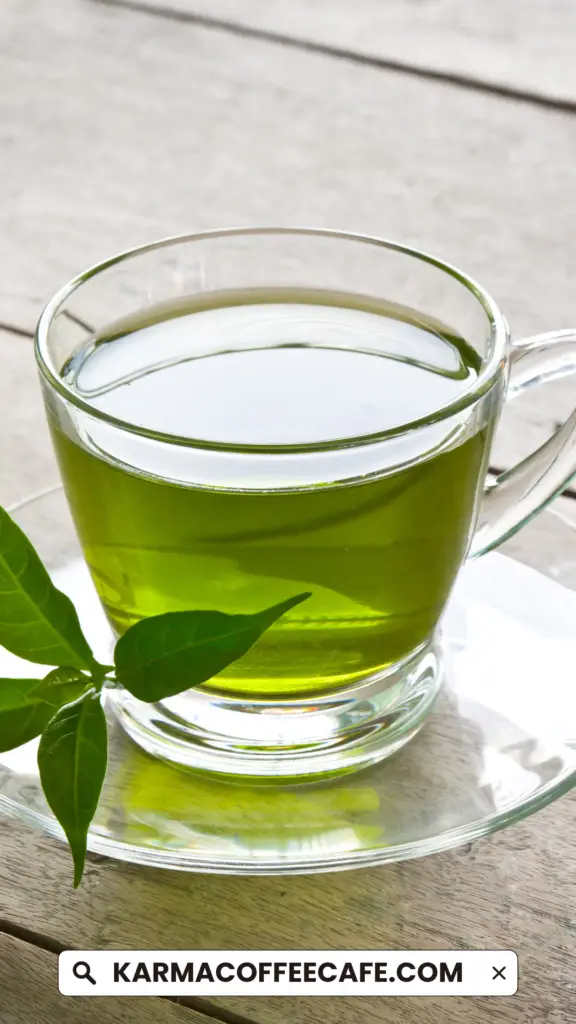
Green tea is renowned for its health benefits, particularly its ability to lower blood pressure.
This tea is rich in catechins, powerful antioxidants that help relax blood vessels and improve blood flow.
Studies have shown that these compounds can significantly reduce both systolic and diastolic blood pressure.
Regular consumption of green tea has been linked to better heart health and reduced hypertension risk.
Experts recommend drinking about three to four cups of green tea daily to maximize its benefits.
This amount provides an optimal intake of catechins without excessive caffeine, supporting a healthy blood pressure level and overall cardiovascular health.
2. Hibiscus Tea
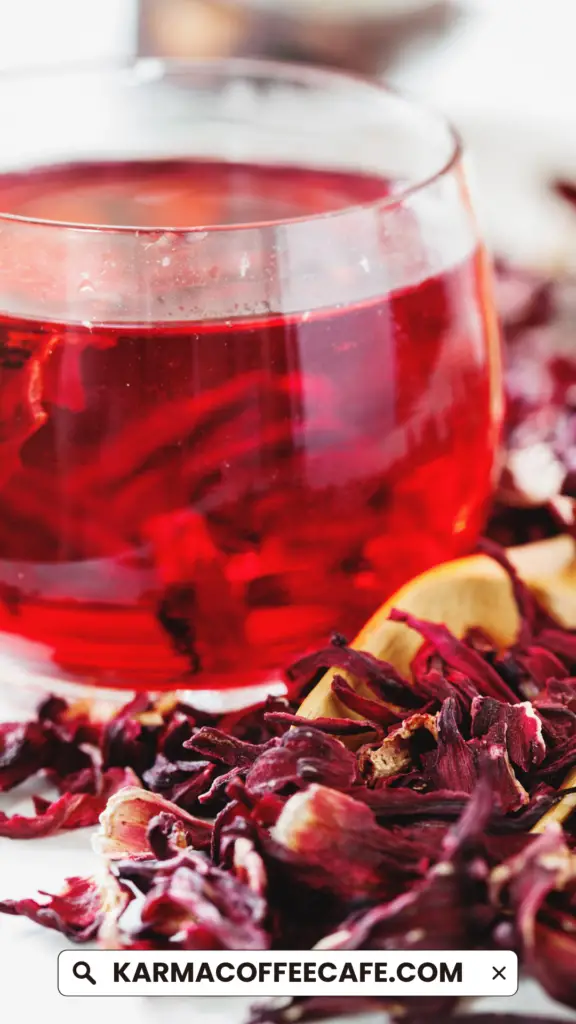
Hibiscus tea, made from Hibiscus sabdariffa, is highly effective in reducing both systolic and diastolic blood pressure.
This tea is rich in anthocyanins, which have antioxidant properties that help relax blood vessels and improve blood flow.
Several studies have shown its impressive impact on hypertension.
In one study, participants who drank hibiscus tea experienced a significant reduction in blood pressure compared to those who took a placebo.
Another study compared hibiscus tea to the hypertension medication Captopril and found similar reductions in blood pressure, highlighting hibiscus tea’s potential as a natural alternative.
Regular consumption of hibiscus tea, about two to three cups daily, can be a powerful addition to a blood pressure management plan.
3. Black Tea

Black tea offers benefits similar to those of green tea when it comes to lowering blood pressure.
Rich in flavonoids, black tea helps improve heart health by reducing inflammation and promoting better blood flow.
Studies have shown that regular consumption of black tea can lead to a reduction in both systolic and diastolic blood pressure.
Additionally, long-term studies have demonstrated that drinking black tea is associated with a lower risk of stroke.
For example, a study conducted over ten years involving over 74,000 participants found that those who consumed four or more cups of black tea daily had a significantly lower risk of stroke.
Incorporating three to four cups of black tea into your daily routine can provide these heart-healthy benefits while also offering a rich and robust flavor.
4. Oolong Tea
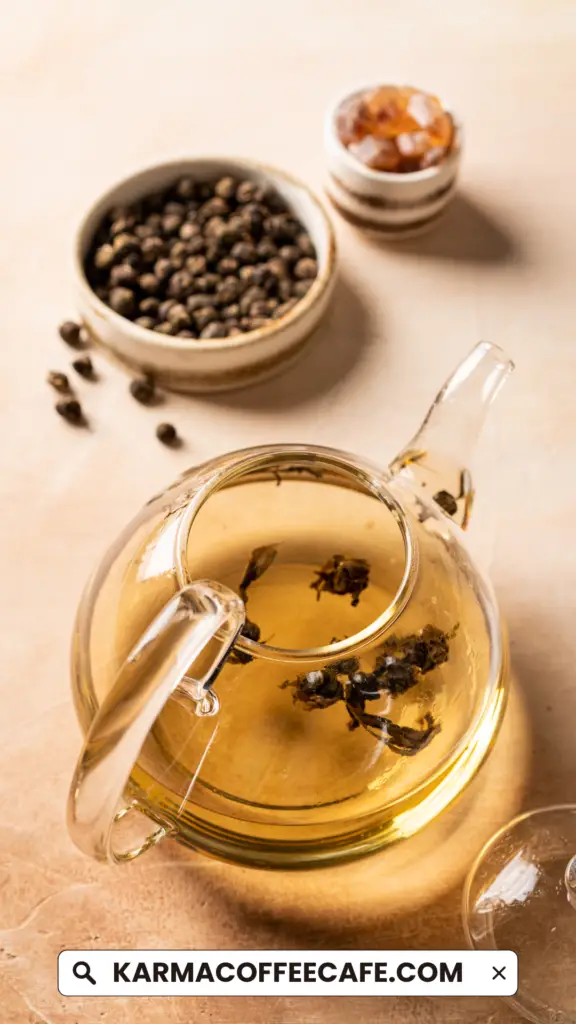
Oolong tea, known for its unique blend of antioxidants, offers significant benefits for lowering blood pressure.
This tea combines the qualities of both green and black tea, providing a rich array of polyphenols that help relax blood vessels and improve circulation.
Research has demonstrated the effectiveness of oolong tea in reducing hypertension.
In one large-scale study, participants who drank oolong tea daily experienced a noticeable decrease in both systolic and diastolic blood pressure.
Another study found that consuming just two and a half cups of Chinese oolong tea per day could reduce the risk of developing hypertension by up to 46%.
Regular intake of oolong tea, typically around two to three cups per day, can support cardiovascular health and help maintain healthy blood pressure levels.
5. Chamomile Tea
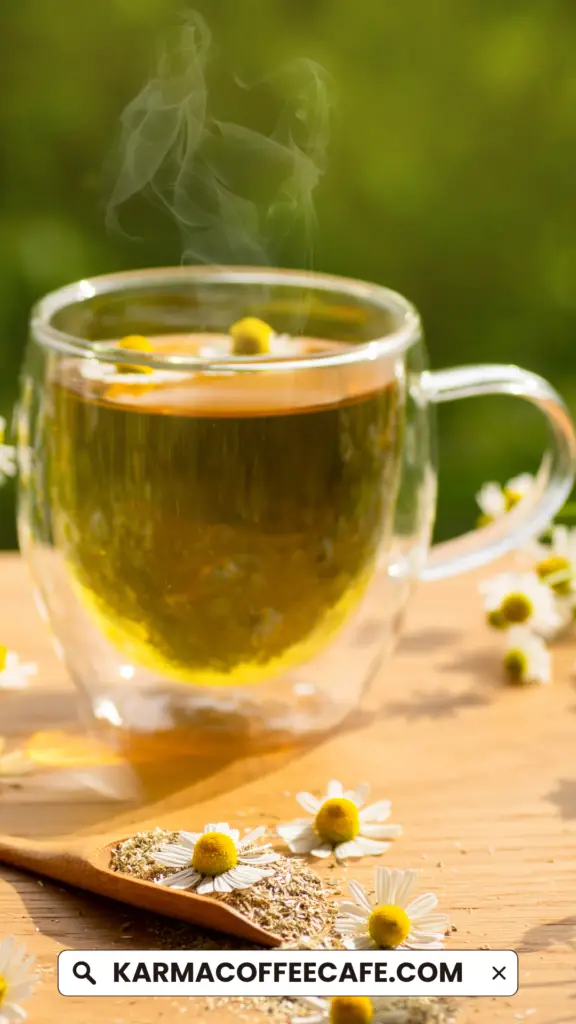
Chamomile tea is well-known for its calming effects, which can significantly help in lowering blood pressure.
The tea contains flavonoids that help relax blood vessels and improve blood flow.
This relaxation effect can reduce stress, a common contributor to high blood pressure.
Studies have shown that regular consumption of chamomile tea can lead to a significant reduction in systolic and diastolic blood pressure.
Additionally, chamomile tea offers other health benefits, such as improving sleep quality, reducing inflammation, and aiding digestion.
Incorporating two to three cups of chamomile tea into your daily routine can not only help manage blood pressure but also enhance overall well-being.
6. Olive Leaf Tea
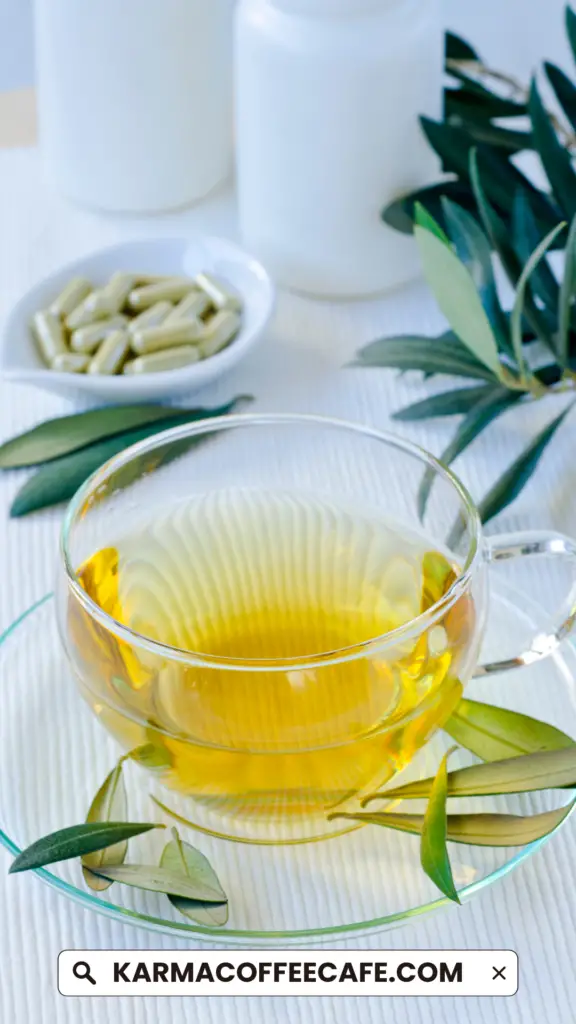
Olive leaf tea is a powerful beverage for lowering blood pressure due to its high content of polyphenols, particularly oleuropein and oleacein.
These compounds help relax blood vessels, improve blood flow, and reduce inflammation, which collectively contribute to lower blood pressure.
Studies have shown that regular consumption of olive leaf extract can lead to significant reductions in both systolic and diastolic blood pressure.
For optimal benefits, it is recommended to drink one to two cups of olive leaf tea daily.
To prepare, steep one teaspoon of dried olive leaves in hot water for about 10 minutes.
You can enhance the flavor with a slice of lemon or a touch of honey.
Incorporating this tea into your daily routine can be a natural and effective way to manage blood pressure and support overall cardiovascular health.
7. Lavender Tea
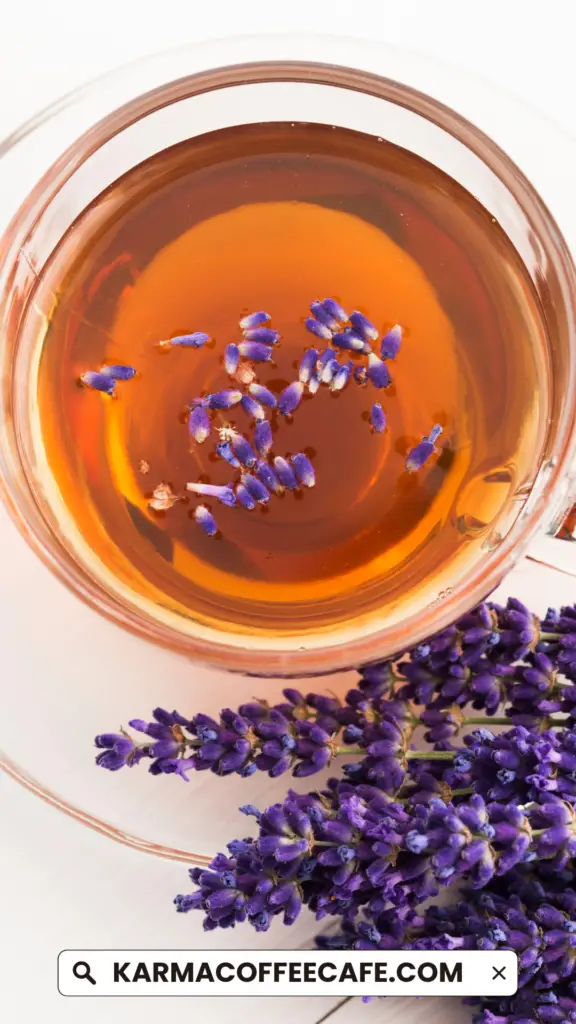
Lavender tea is renowned for its calming effects, making it an excellent choice for managing blood pressure.
The soothing properties of lavender help reduce stress and anxiety, which are key contributors to high blood pressure.
By promoting relaxation, lavender tea can lower heart rate and improve overall cardiovascular health.
Regular consumption of lavender tea can be easily incorporated into your daily routine.
Simply steep a teaspoon of dried lavender flowers in hot water for about 10 minutes, and enjoy a cup in the evening to unwind.
Adding lavender tea to your daily regimen can support heart health and contribute to a more relaxed, stress-free lifestyle.
Additional Teas Worth Mentioning
Hawthorn Tea
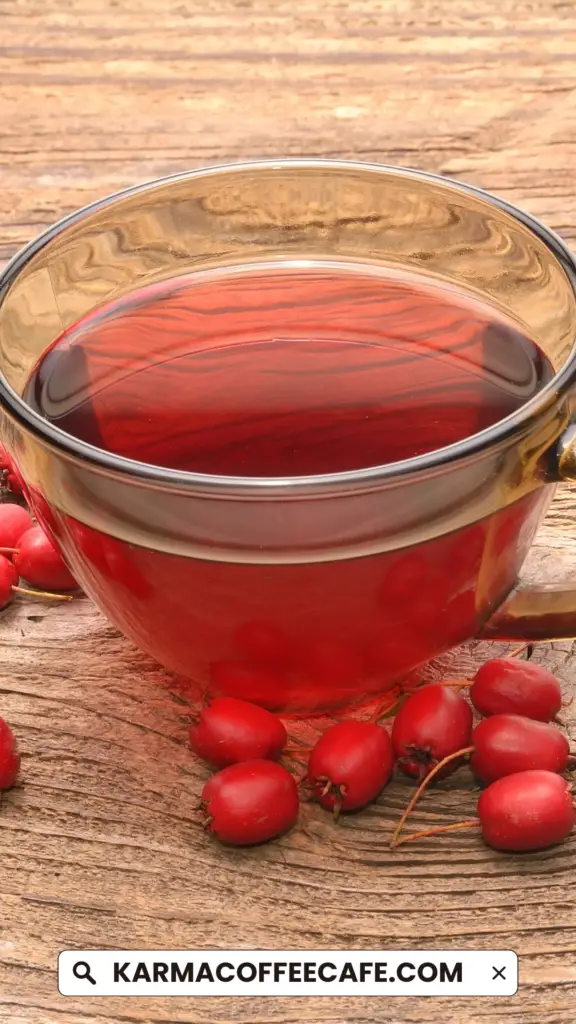
Hawthorn tea is known for its potent diuretic properties, which help to reduce fluid retention and lower blood pressure.
The tea is rich in flavonoids and antioxidants that support heart health by improving blood flow and reducing inflammation.
Regular consumption of hawthorn tea can help manage blood pressure and enhance cardiovascular function.
To incorporate hawthorn tea into your routine, steep one teaspoon of dried hawthorn berries or leaves in hot water for about 10 minutes, and drink one to two cups daily.
This tea is a valuable addition to a heart-healthy lifestyle, promoting both blood pressure control and overall well-being.
Lemon Balm Tea
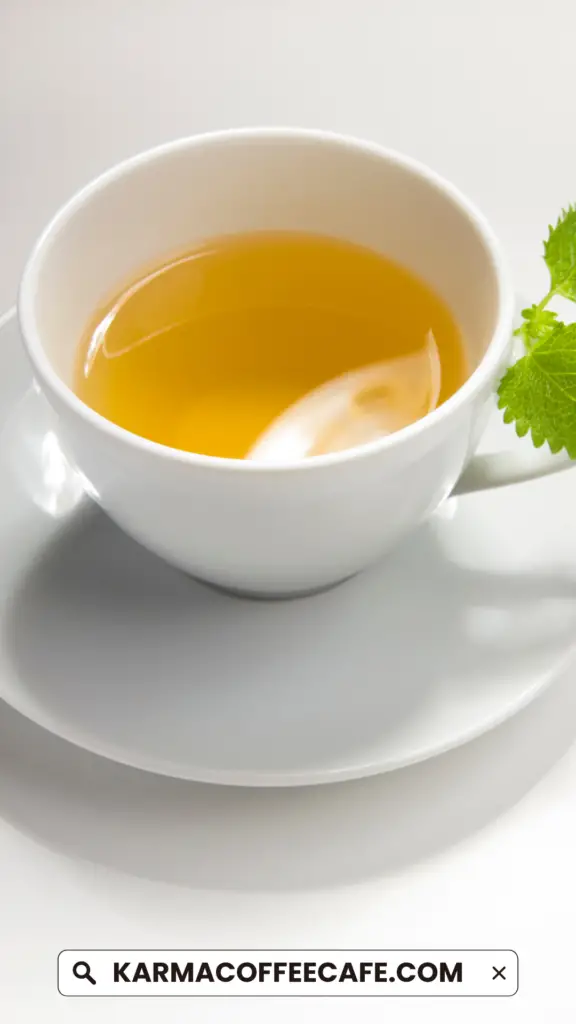
Lemon balm tea offers a combination of antioxidant and calming effects, making it beneficial for managing blood pressure.
The antioxidants in lemon balm help protect the heart and blood vessels from oxidative stress.
Additionally, its calming properties can reduce stress and anxiety, which are often linked to high blood pressure.
To prepare lemon balm tea, steep one to two teaspoons of dried lemon balm leaves in hot water for 10 minutes.
Drinking this tea regularly, especially in the evening, can support heart health and contribute to a more relaxed state of mind.
Incorporating lemon balm tea into your daily routine can be a simple yet effective way to help manage blood pressure naturally.
Potential Side Effects and Precautions
Possible Interactions with Medications
When incorporating tea into your routine to manage blood pressure, it’s important to consider possible interactions with medications.
Some teas, like green and black tea, contain compounds that can interact with certain prescription drugs.
For example, green tea can reduce the effectiveness of beta-blockers and other blood pressure medications.
Additionally, herbal teas such as hibiscus and chamomile might interact with diuretics or blood thinners.
It’s essential to consult with your healthcare provider before adding any new tea to your regimen, especially if you are taking medications for hypertension or other health conditions.
Caffeine Content and Its Impact on Blood Pressure
Caffeine, present in teas like green, black, and oolong, can temporarily increase blood pressure.
While moderate caffeine intake is generally safe for most people, excessive consumption can lead to spikes in blood pressure.
It’s advisable to monitor your caffeine intake and choose decaffeinated options or herbal teas if you are sensitive to caffeine.
On average, it’s best to limit caffeine consumption to less than 400 mg per day, which is roughly equivalent to four cups of brewed coffee or eight cups of tea.
Recommended Limits and Consultation with Healthcare Providers
To safely incorporate tea into your blood pressure management plan, it’s important to adhere to recommended limits.
Drinking two to four cups of beneficial teas such as green, hibiscus, or oolong daily can offer health benefits without overloading on caffeine or other active compounds.
Always consult with your healthcare provider to tailor tea consumption to your specific health needs and ensure it complements your overall treatment plan.
Lifestyle Tips to Complement Tea Consumption
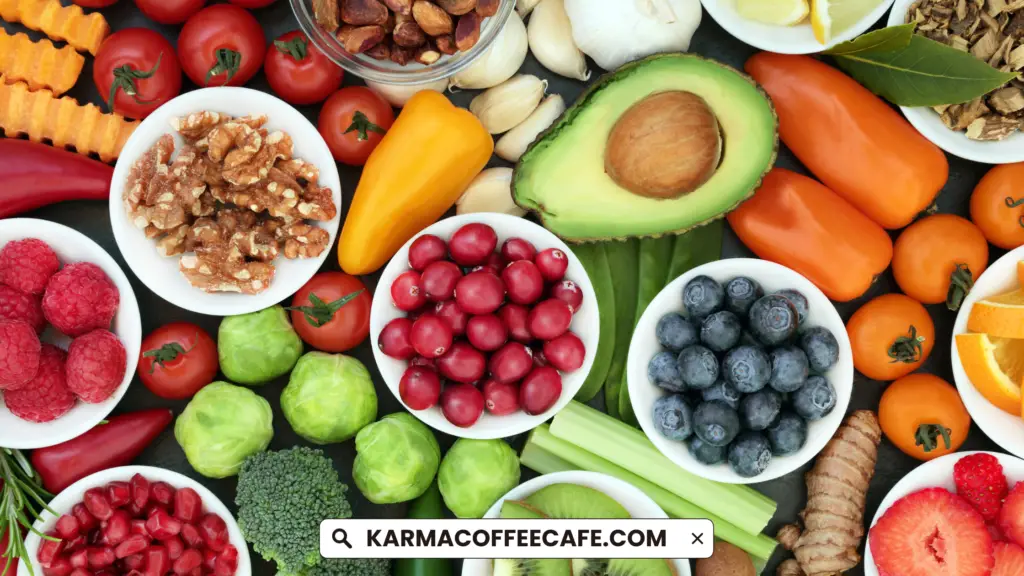
Dietary Changes (DASH Diet)
Incorporating the Dietary Approaches to Stop Hypertension (DASH) diet can significantly enhance the benefits of drinking tea for blood pressure management.
The DASH diet focuses on consuming fruits, vegetables, whole grains, lean proteins, and low-fat dairy while reducing intake of sodium, red meats, and sweets.
This balanced approach helps lower blood pressure by providing essential nutrients like potassium, calcium, and magnesium, which support heart health.
Complementing your tea consumption with a DASH diet can create a comprehensive strategy for managing hypertension effectively.
Regular Physical Activity
Engaging in regular physical activity is crucial for maintaining healthy blood pressure levels.
Exercise helps strengthen the heart, improve blood circulation, and reduce stress, all of which contribute to better blood pressure control.
Aim for at least 150 minutes of moderate-intensity aerobic exercise, such as brisk walking, cycling, or swimming, each week.
Additionally, incorporating strength training exercises two days a week can further enhance cardiovascular health.
Stress Management Techniques
Managing stress is a key component in controlling blood pressure.
Chronic stress can lead to persistent hypertension, so finding effective ways to relax is essential.
Techniques such as deep breathing exercises, meditation, yoga, and progressive muscle relaxation can help reduce stress levels.
Drinking calming teas like chamomile or lavender in the evening can also aid in stress reduction and promote better sleep.
Conclusion
Incorporating teas like green, hibiscus, black, oolong, chamomile, olive leaf, and lavender into your daily routine can significantly help in managing blood pressure.
Each tea offers unique benefits, from reducing inflammation to promoting relaxation.
These natural remedies, combined with a balanced lifestyle, can enhance your overall heart health.
Start integrating these teas into your diet, along with healthy eating, regular exercise, and stress management techniques, to effectively control your blood pressure and improve your well-being.
